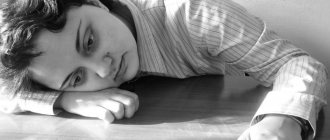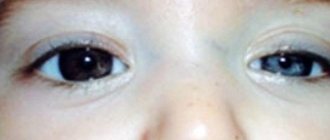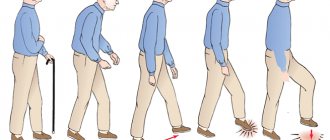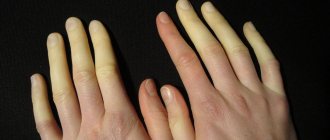Diogenes syndrome is considered a serious pathology that poses a danger to both the person himself and those around him. You may have seen on the news people cluttering their apartments with unnecessary things. They take home everything they can get their hands on, be it broken furniture or ordinary empty boxes. You definitely can’t be in their home. This is a clear example of unsanitary conditions. Why do people behave this way? Is it possible to somehow change the situation?
Symptoms
Patients are not able to think critically about their condition, so they rarely seek special help, considering their “hobby” to be absolutely normal. Diogenes syndrome can be suspected based on the following signs:
- pathological passion for hoarding;
- negative and aggressive reaction to condemnation, inability to self-criticize;
- neglect of hygiene rules;
- greed;
- attempts to isolate yourself from society;
- indifference to others;
- lack of shame.
Patients with Diogenes syndrome bring absolutely everything into the house: glass, broken furniture, even rotten vegetables and fruits. Often these accumulations smell unpleasant, and rats and cockroaches infest the house. A person with Diogenes syndrome, in addition to himself, suffers from relatives and neighbors. Attempts on the “collector’s” collection and attempts to get rid of it are met with severe rebuff, even leading to family quarrels. Patients become secretive, taciturn, and may not go out for a long time, considering communication with people pointless. Due to neglect of hygiene, they often suffer from various ailments, but do not seek medical help. The consequences of such an attitude towards yourself and others can be very sad.
What distinguishes those suffering from Diogenes syndrome is a complete absence of a sense of shame: they can look like homeless people, relieve themselves wherever they want, and do whatever comes to their mind. Sometimes this becomes a reason for the police to detain a person.
A characteristic sign of the disorder may be that patients, even with a stable financial situation, count every penny spent and are very upset due to what they consider to be high expenses. There are cases when people moved to a garbage dump so as not to spend money on maintaining the apartment.
Any of these symptoms should alert relatives and neighbors and serve as a reason to call a specialized medical team.
Healing with love
What should the relatives and neighbors of the modern Plyushkins do? After all, they have to endure for years an unpleasant smell, dirt, and sometimes hordes of cockroaches and mice, which naturally feel at home in such apartments. In addition, such a neighborhood can pose a direct danger. After all, for example, if there is a fire in a room full of garbage, it will be impossible to put out the fire; such apartments will burn to the ground.
Ideally, the patient should be consulted by a psychiatrist or at least consult a psychologist. In advanced cases, the doctor may prescribe special medications that stabilize the patient’s condition. With regular use of medications, a state of remission often occurs, and the person returns to a normal lifestyle. And in the initial stages of the disease, psychiatrists advise trying to come to an agreement with the collector, directing his passion for collecting in a peaceful direction. For example, for starters, you can advise him to collect something specific or at least of the same type. You can get him interested in collecting culinary recipes - then time will be spent on selecting them, sticking them in special albums, as well as watching TV shows on the topic and recording the information received in special notebooks.
Instead of living cats, you can advise the “collector” to collect postcards, stamps, labels and other things with the image of this animal. If a person drags old newspapers and magazines into the house, it will be useful to stipulate in advance that printed materials are selected only on a specific topic. It would be nice to regularly help your relative with cleaning.
Origin of the term Plyushkin syndrome
The origin of the name Plyushkin syndrome is actually quite banal and familiar to absolutely everyone who studied at school and took a course in Russian literature. The disease Plyushkin syndrome takes its name from the name of the character of the same name in the story “Dead Souls” - Plyushkin. The writer Gogol very clearly and clearly described this syndrome as a disease of an old miser-landowner who dragged everything that caught his eye to his home. And these were not useful and necessary things, but various rubbish that did not carry any useful load. At the same time, Plyushkin categorically refused to part with all this “good”,
Plyushkin syndrome in medicine is also called Messi syndrome, which means the accumulation of dirt and disorder in the home. In America, this syndrome is called siligomania, which means insane passion, on the verge of insanity, or the syndrome of senile squalor. In many sources you can also see that Plyushkin syndrome is mistakenly called Diogenes syndrome. This is fundamentally wrong, since Diogenes, the ancient Greek thinker, lived in a barrel throughout his entire life. By this he showed his asceticism and independence from social benefits. In medicine at the moment, Diogenes syndrome is characterized by a disease in which complete neglect of oneself as an individual is manifested.
https://youtu.be/sNoY9khncG4
Plyushkin syndrome. Characteristic
Most experts regard the syndrome as a form of obsessive-compulsive disorder (obsessions - obsessive thoughts, compulsions - obsessive actions). The nature of the course, the intensity of expression, and the possibility of cure are different. Each case must be considered individually. Another manifestation of Plyushkin or Diogenes disease is indiscriminate collecting. Messi syndrome (disease) is also similar to shopaholism. In its simplest form, people buy large quantities of things unnecessarily. They first explain (rationalize) the reason for the purchase to themselves, considering the purchase of each specific thing absolutely necessary for them. This is how they end up with an excessive amount of various things in their house - clothes, books, household appliances.
Signs of Plyushkin syndrome:
- Constantly collecting various things at home. In severe cases, this may be garbage, scraps from garbage dumps, and the like.
- An inexplicable attachment to all your things, a categorical refusal to throw them away, even if they are old, broken and can no longer be used for their intended purpose.
- Cluttering your home - things are lying everywhere, it is often impossible to even move around the apartment.
- A person stops keeping his house clean and doesn’t take care of himself.
- Suspicion of people is growing.
- Gradually growing indifference to your health and others. Social isolation.
- A clear reluctance to get rid of trash and very old things.
People bring home things that are often absolutely unnecessary. As the disorder worsens, they become less critical of their actions. They no longer even try to somehow rationally explain (at least to themselves) why they take everything home. With the disappearance of criticality towards one’s actions, Plyushkin’s syndrome “grows” into a mental illness or disorder. Then Diogenes syndrome becomes increasingly psychotic.
“Plyushkins” can collect clothes (buying them in unrealistic quantities), books, magazines, household items, dishes and just all things that are completely different in functionality, sometimes even pathological hoarding of animals occurs and it’s good if these animals are safe for others. the animals are malnourished and extremely unkempt. The house is gradually turning into a catastrophic dump. People do not want to part with a single thing. Although, it often happens that if you quietly throw out even a whole bunch of things, they simply will not notice it.
Seeing the reaction of others to their “hobby,” people with Plyushkin syndrome begin to avoid communication and become distrustful and touchy. Some people fully understand that their collecting is a strange activity, but they cannot help themselves, or rather, they do not want to. Because this is how they achieve psychological comfort. Sometimes such people do not collect things, but buy, purposefully. They spend a lot of money on this, and their financial situation worsens. Their behavior usually greatly worries those close to them, but “plushkins” usually have an extremely negative attitude towards offers of help or criticism of their address.
Usually it all starts small - people start collecting, often in childhood. Then the collections expand to unrealistic sizes, a painful attachment to things arises, and along with the number of things in the house, a deterioration in the person’s mental state occurs. Or they start collecting various things from friends (and sometimes from the trash heap). The hobby of collecting becomes dangerous both for the collector himself and for loved ones. It is impossible to clean the house. In extreme manifestations, the syndrome manifests itself in the collection of scraps and garbage.
Sometimes people pack to try to cope with their fears or anxiety. Instead of dealing with the real problem, they “drive” it deeper into themselves. And anxiety is “quenched” by collecting. Sometimes this occurs against the background of neurotic disorders, after severe stress. Diogenes syndrome is also a frequent companion when you are alone. It often manifests itself most fully in adulthood.
Manifestations of the disease
You can notice a pathological hoarder from afar - this is a sloppy appearance, unwashed hair and the obligatory storage of unnecessary things. After the first complaints from the neighbors, it becomes clear that Diogenes is ill, because the unexpected rats and cockroaches will not take long to appear.
In some cases, when opening an apartment, you can see cabinets and shelves filled with junk, overflowing with things and household items. Boards and old boxes, food, things from the trash bin - all this is brought in for further use.
People living in their own homes often create shelters for stray animals, causing disputes with neighbors. American scientists have created a five-point scale for assessing pathology, there are several criteria: appearance, litteriness of the room and the ability to take care of oneself.
Patients are critical of outside attempts to help, withdraw into themselves and stop contacting loved ones. The manifestation of the disease can be triggered by economic problems in the family or the death of a loved one, and as a result, poverty and poverty.
Causes of pathology
Plyushkin's syndrome still remains not fully understood. But despite this, scientists have identified several main reasons that could provoke the emergence and development of pathology:
- Special personality traits. Excessive prudence and saving even on necessary things can cause the development of Plyushkin syndrome. As people get older, greed leads them to clutter their home with everything they are offered to take. What ends up happening is uncontrolled hoarding.
- Disadaptation of a person. Patients do not recognize life in society and do not need to communicate with other members of society. Due to their closed nature, they begin to build barricades from garbage in the house, trying to at least hide from the world in this way.
- Unfavorable living conditions. The disease often affects those people who in the recent past suffered serious financial problems or lived during a crisis or shortage of something. This becomes especially noticeable among people born during wartime.
- Heredity. Plyushkin syndrome cannot be determined at the genetic level and cannot be inherited. But the behavior of parents and their habits are usually copied by any child. That is why, if immediate family members tend to accumulate unnecessary things in large quantities, children can adopt the behavior of adults.
- Problems in childhood. If a child was given little attention, did not give him gifts or buy him sweets, in adulthood he himself will begin to make up for what he lacked earlier. Sometimes this ends with the appearance of Plyushkin syndrome.
- Tragic moments. In the life of any person there are both joyful and difficult moments. Severe stress and prolonged depression can lead to the syndrome as a complication of a neurasthenic disorder.
- Loneliness. Some patients who lack communication with other people try to surround themselves with different things that can somehow drown out loneliness.
- Pathological disorders. Diseases of the circulatory system, traumatic brain injuries, neoplasms in the brain, consequences of operations, diseases of the nervous system and any neuralgic diseases can be another reason for the appearance and development of the syndrome.
- Mental disorders. For example, schizophrenia is often accompanied by syllogomania, which causes unjustified acquisitions and accumulation of unnecessary things and objects.
- Bad habits. People who suffer from alcoholism become prone to uncontrolled hoarding over time.
Almost all of these reasons are evidence that Plyushkin syndrome occurs due to some kind of mental disorder. It’s not scary if a person buys really necessary things, even in large quantities. The presence of the syndrome should be suspected when new acquisitions turn out to be completely useless.
Diagnosis and treatment
As stated above, Diogenes syndrome is not an independent disease. This is a symptom of one of the mental disorders. They can be diagnosed using brain imaging, which will show damaged areas or tumors. A visit to a psychiatrist is also needed.
How to treat Diogenes syndrome? Difficulties may arise in this matter because the patient is not aware of the problem. So, family and friends must take responsibility for its decision. They are the ones who should pay attention to warning signs and ask a doctor for help.
Typically, nootropic drugs that normalize brain function, antipsychotics, and antidepressants are used to treat Diogenes syndrome. But this is not enough.
It is necessary to give the patient motivation to act. Tell him, for example, that his large “collection” needs to be organized, otherwise it will be unpleasant to look at. Gently lead him to the fact that he needs to observe the rules of hygiene both in relation to himself and in relation to his home. Tell the person that you would like to visit him more often, but you don’t even have a place to sit.
Never throw away things without his consent. This can provoke anger and aggression. It is better to surround the patient with care and love. Show that under any circumstances you remain a loving person.
If all else fails, the only way out is treatment in a psychiatric clinic. But remember that it requires either the consent of the patient himself or a court decision.
Causes
Chronic alcoholism, as one of the most common causes of the development of syllogomania, is typical for vagabonds and the poor. But rich people are no less inclined to do this; they hide their desire to collect junk from others and accumulate savings.
The disease is caused by the following reasons:
- desire to collect things;
- family tragedies;
- greed and stinginess in life;
- disturbance in the frontal lobes of the brain;
- senility.
The causes may be diseases that affect the brain, unsuccessful operations and injuries. Due to disruption of both lobes of the brain, Diogenes syndrome manifests itself, which is treated with medication with the consent of the patient.
Hoarding disease occurs due to stress and can be inherited. Parents, without noticing it themselves, instill in their children an overly thrifty attitude towards things. Children begin to accumulate toys from childhood, and then this develops into collections and accumulations on the shelves of the apartment.
Complications
The patient’s condition may worsen due to self-neglect. Such people not only forget about the basic requirements of hygiene and sanitation, they often forget to eat or take necessary medicine. Due to the fact that a person is constantly in a state of mental stress, there is a high risk of developing physical collapse. It is at this time that psychosomatic diseases can develop or worsen:
- pneumonia;
- migraine;
- gastritis, pancreatitis;
- ulcer, ulcerative colitis;
- radiculitis;
- neuralgia;
- hypertension, coronary heart disease;
- bronchial asthma;
- psoriasis, atopic dermatitis;
- diabetes;
Diogenes syndrome can lead to diabetes
- rheumatoid arthritis;
- thyrotoxicosis;
- obesity;
- in some cases, oncology.
Plyushkin syndrome: types of hoarding
Many people mistakenly think that people with Plyushkin syndrome litter their house exclusively with clothes and things, but in fact, in the room of such people you can see completely different rubbish.
How does a person with Plyushkin syndrome think?
There are the following types of pathological hoarding:
- Some people bring paper, cardboard boxes and boxes, newspapers, magazines and books into the house. They are confident that later they will be able to hand over the collected waste paper, and, of course, will read the books and magazines.
- Things, clothes. Of course, it is precisely the things that often litter the premises of such people. They buy clothes at second-hand stores and flea markets. In the summer they buy clothes for the winter, for growing up/in case they lose weight, etc.
- Figurines, keychains, accessories, etc. Someone cannot pass by various trinkets, assuring themselves that they fit well into the interior of their home. Often such things are bought just like that and do not carry any value.
- Dishes. Very often old people store dishes, sets, etc. They insist that this is their memory and that they cannot just throw it all away. Moreover, such dishes are often completely unsuitable for use (broken, bruised, etc.).
- Bottles, caps, bags, etc. Sometimes all this is stored in order to someday make crafts, coasters and a bunch of other things. But, as a rule, nothing like this happens, and garbage simply litters the room and accumulates at an unprecedented speed.
- Soft toys, gifts from exes. Such collections very often clutter the house. Of course, you can leave a few pieces as souvenirs, but there is no need to store old, useless toys, vases, frames, etc. The main reason to leave them is the memory of events (given as a gift on the first date, for 1 year of marriage, etc.).
- Preservation, preparations, etc. Sometimes thrifty housewives clearly go too far and preserve everything that, in principle, can fit and end up in a jar. As a result, the shelves are collapsing under the weight of supplies, and it is impossible to walk through the cellar due to the huge number of empty cans left “for later.” The most interesting thing is that in such a house they may not even like or eat canned food.
- Well, and, of course, animals. Yes, there are people who “hoard” animals. This is much less common, but still occurs. There are sweet dandelion grandmothers and grandfathers who bring 50 cats and dogs into their one-room apartment and claim that they cannot say goodbye to them because it’s a pity. Well, in this case, people living nearby can only “rejoice” that they have such a caring and kind neighbor.
Many animals
Plyushkin syndrome: causes
The mechanisms for the development of passion for pathological hoarding have not been fully studied, but doctors have identified a number of factors that can initiate the development of the disorder. The most common causes of compulsive behavior are the following circumstances.
- Features of the personal constitution. Most often, individuals with Plyushkin syndrome are overly stingy and calculating people. Their life credo is saving every penny. Such people have a fixation on the thought: in order to eventually get rich, you must save money all your life and use existing things to the hilt. Dyspozophobes are people who are unable to adapt and establish contacts in society. These are closed, emotionally repressed, uncommunicative people.
- Material disadvantage in personal history. Many patients have experienced significant financial difficulties in the past and experienced times of hardship and need. Even as the situation improves, people with Plyushkin syndrome continue to make abundant supplies, collecting things and accumulating food for “rainy days.”
- Serious life shocks. The disorder can be triggered by a psychotraumatic situation (read about psychological trauma) and personal drama: the death of a close relative, separation from a loved one, a serious illness of a spouse, one’s own health problems.
- Unfavorable heredity. At risk are people with a family history of obsessive-compulsive and anxiety-phobic disorders, bipolar depression, and various forms of psychopathy.
- Organic diseases of the central nervous system and brain. The presence of pathologies in the central nervous system, especially those caused by acute circulatory disorders, can initiate the development of pathological accumulation. Plyushkin syndrome can also develop after head trauma.
- Chronic alcoholism. Excessive consumption of alcoholic beverages leads to global changes in the structure of personality - its disintegration. Plyushkin syndrome in this case is one of the manifestations of degradation. (Read about alcoholism treatment).
- Senile dementia. Against the background of dementia, abnormal tendencies often appear, while pathological hoarding is one of the most common deviations in old age.
Stages of formation
Pathological greed is formed in childhood, when the child lacked the love and care of his parents. Greed began to develop along with the desire to receive and the fear of losing the already rare moments of their manifestations.
The human brain is a very complex organ and consciousness is formed in several stages even in the embryo. At an early stage of development, primary instincts are formed in it, similar to animals: to eat, reproduce, escape from predators, steal food or an item out of necessity or simply for the sake of interest. If in the Stone Age these manifestations helped to survive, now they are the source of many problems in society. At a later stage, “humanizing” qualities develop in the brain: the ability to speak, think abstractly, love, desire for spiritual intimacy, shame and others.
As a result of mutation or heredity, a person may have a poorly developed later layer of the brain, causing the first layer to become more pronounced. Greed also belongs to this layer. Another reason for the appearance of greed may be brain injury or old age. During it, the later layer of the brain begins to work poorly, as a result of which all positive qualities are dulled. They may be replaced by greed, increased appetite, stinginess, cruelty and others. If the reason lies in psychology, then it is possible to overcome greed.
There are a lot of greedy people. Advertising has a great influence on the human psyche, the main goal of which is to play on human weaknesses. Advertising encourages people to fall for low prices, sales and other sales tricks and buy things that a person does not need. Observing this day after day, a false perception of the world and personality is formed.
Causes of Plyushkin syndrome
To date, Plyushkin syndrome has not been fully studied. But still, the clinical picture of mindless, crazy hoarding can be described.
Scientists have identified several reasons that may explain the occurrence of Plyushkin syndrome.
Unique personality traits
As a rule, the syndrome of hoarding things and cluttering the surrounding space is characteristic of people who are unemotional and socially inactive. They bring everything into the house - both necessary and unnecessary, stingy, greedy people. Plyushkin syndrome can appear in those who in life show such qualities as prudence, excessive savings on the essentials - food, household items, clothing. If these personality traits are not corrected throughout life, they will eventually develop into uncontrolled hoarding.
Dysfunctional life
If a person’s life is unfavorable or a person has experienced serious financial difficulties in the recent past, then in such cases people tend to accumulate unnecessary things. Also, those who survived acute times of total shortage during the 90s suffer from Plyushkin syndrome. A syndrome of uncontrolled hoarding appears in elderly people who went through the war and deprivation of that period.
Pathological diseases
Traumatic brain injuries, atherosclerosis, diseases of the nervous system, neuralgic disorders lead to the fact that a person begins to surround himself with unnecessary things.
Difficult moments in life
This reason for the occurrence of Plyushkin syndrome can be attributed to the previous one, since a person who has experienced difficult dramas in life begins to accumulate things in memory of those events. For example, if a patient with Plyushkin syndrome has lost one of his close and dear people, then he may begin to panicky collect all the things that at least somehow help restore the memory of the deceased. This could be clothes, household items - everything that this person once loved during his lifetime.
Hereditary factor
In this case, we are not talking about some kind of genetic program laid down at birth, but about heredity in terms of imitation and copying the habits of parents and immediate environment. If relatives accumulate things and litter the room in which the family lives, then the child takes over all this. This is considered a kind of educational technique. A person can be trained to speak, read, etc. So accumulation can be attributed to such acquired behavioral skills.
Bad habits
It has been established that people suffering from alcoholism have a tendency towards uncontrolled hoarding.
Symptoms of Diogenes syndrome
Psychologists say that Diogenes syndrome is known for the following symptoms:
- hoarding
- failure to comply with hygiene rules;
- hermitage;
- shamelessness;
- apathy;
- stinginess;
- lack of self-criticism;
- aggressiveness towards criticism.
Some doctors suggest calling the disease the syndrome of senile squalor or Plyushkin syndrome, which, as those who read Gogol remember, loved to bring more of everything into the house.
Patients with Diogenes syndrome, as a rule, live poorly, although they often have enough money. Such people prefer not to touch their savings and keep them in their hiding places or in a bank account. Such people drag everything from the street: empty cardboard boxes, old furniture, strollers and other unnecessary things. The situation gets worse due to the unpleasant smell. Every thing, in their opinion, is needed and useful in everyday life, so the Plyushkins do not throw anything away.
For such people, order and cleanliness in the house, as well as their own appearance and hygiene, fade into the background. There is even an unusual type of pathological hoarding - pathological hoarding in animals. This is a situation in which a huge number of stray dogs or cats are kept in a home without receiving proper care.
As a rule, the disease affects older people, but sometimes it occurs in young people. Scientists from the University of California, who have studied this disease for a long time, have come to the conclusion that the passion for collecting lies in the human brain. As children, many of us diligently collected stamps, postcards, badges, coins, and ordinary candy wrappers. Doctors say that many collectors are gradually approaching this disease, so they advise monitoring the behavior of their loved ones. With age, this passion passes for some, while for others it develops into a serious hobby.
A striking example
A resident of the Swedish city of Skellefteå, Kurt Degerman, lived in a garbage dump for the last 30 years of his life, eating scraps. He died at the age of 60, that is, this syndrome began in him at about 30 years old and was not associated with old age. After his death, a fortune was found in his bank account - about one and a half million dollars.
In his youth, Kurt realized that food and clothes from the store were a waste, so he chose to live in a garbage dump and wear dirty things instead of at home. Until his death, the man wore the same dirty blue jacket. I found food and clothes in a landfill. At the same time, Degerman invested all the money that he managed to get by begging or selling cans in securities and gold. Relatives said that Degerman was an excellent financial analyst and had an excellent understanding of the processes on the stock exchange. True, he was unable to benefit from the fruits of his mind, and his wealth went to his relatives.
In this case, the object of pathological hoarding is financial resources.
Symptoms
Absolute indifference to appearance and the norms of social society make a patient with Diogenes syndrome look like a street tramp. Within the limits of the norm, public undressing and dressing, as well as finding things in landfills is acceptable.
The plot of “Dead Souls,” namely the character Plyushkin, gave a clear picture of the concept of a syllogmaniac, collecting all the necessary and unnecessary rubbish in his closet. Plyushkin's problem is that he not only does not throw away old things, but also brings in new ones. Inappropriate aggression towards throwing away one's belongings turns into mental mania.
Symptoms of the disease are:
- isolation from the outside world;
- unwillingness to live in cleanliness and order;
- anger in response to outside attempts to help;
- lack of shame;
- greed to spend money;
- accumulation of old trash.
When collecting stamps or small souvenirs in childhood, no one can predict that this is fraught with a mental disorder in the future. It is quite difficult to notice the disease at an early stage, since both poor and wealthy people suffer from it.
Initially, this may manifest itself in a desire to save on rent or food, then on things. Neighbors must notice the enclosed space and their constant presence in it and must signal this.
Indifference to one's appearance and lack of daily hygiene procedures leads to an unpleasant odor and turning into a street tramp. The reluctance to communicate with friends and acquaintances does not concern a patient with Plyushkin syndrome, since he considers it beneath his dignity.
Symptoms
Diogenes syndrome, or pathological hoarding, is characterized by specific symptoms. The main symptom of the disorder is a passion for collecting. At the same time, patients collect various rubbish, sometimes even garbage, bringing it all home. As a result of such collecting, the living space turns into a dump, where there is often complete chaos and an extremely unpleasant smell. People are sure that sooner or later every thing will definitely come in handy, and sometimes they find different uses for different items that are not entirely adequate.
Patients with Diogenes syndrome show aggression towards others, in particular towards those who make comments about behavior or lifestyle, or want to remove or throw away collectibles. People with the disorder are not self-critical and do not admit that they have a problem.
Such patients completely neglect personal hygiene, they are very sloppy, do not take care of themselves, as a result of which they become like tramps. The patient’s relatives and neighbors suffer from this pathology. Due to misunderstanding on the part of others, a person tries to completely isolate himself, becomes withdrawn and shows absolute indifference to what is happening around him.
Patients do not feel a sense of shame and can undress in a public place or relieve themselves wherever necessary. They cannot give an adequate assessment of their behavior, but they treat themselves rather disdainfully.
People with Diogenes syndrome often exhibit excessive stinginess. At the same time, patients in most cases have fairly good savings. They try to save on everything - food, clothing, hygiene products and medicines. Sometimes patients with the disorder move to a landfill so as not to spend money on maintaining the apartment.
Forecasts and preventive measures
The prognosis, unfortunately, is unfavorable. Treatment will improve the patient's condition, but not for long. After some time, the symptoms of Diogenes syndrome will return.
As for prevention, it is associated with increased mental activity. It is recommended to regularly devote time to reading, solving crosswords, and studying foreign languages. You also need to change your lifestyle by taking up, for example, sports. You should spend more time outdoors.
To prevent the syndrome in older people, you need to provide them with adequate nutrition, monitor their health, and control their weight. It is important to establish a sleep and rest schedule.











